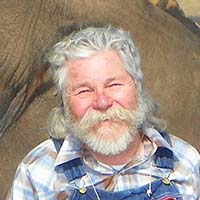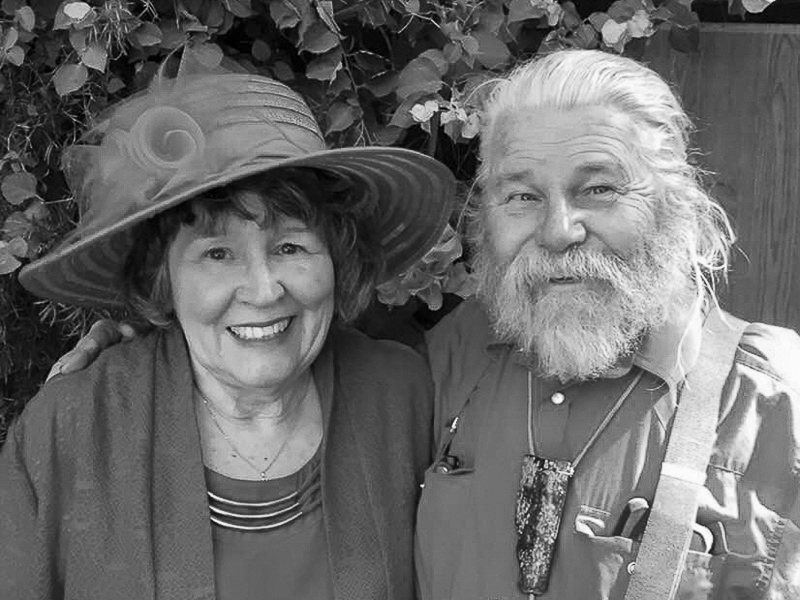
The Lord’s Prayer Indicates Slovenians are West Slavs
Abstract
The currently held opinion of the political and academic communities is that Slovenians are South (Yugo) Slavs. While this concept is expedient and based on Slovenian proximity to, and recent communal history with and in the Federation of Yugoslavia, nuances of the “Lord’s Prayer” (Our Father) {Očenaš} poignantly reveal that Slovenians are in fact West Slavs, sharing profound similarities with Polabians and other North Western Wends since the Ninth Century. This is especially evident in their terms for Father, Monarch, Evil, Bread, and Will.
Introduction
About the year 862 Cyril and Methodius began to plan their mission to the Slavic peoples in Moravia. Cyril generated a Glagolithic alphabet and translated scripture and prayers into a “Common Slavic Language”. Disciples of Methodius and Cyril “fine tuned” the Lord’s Prayer to the needs of local Slavic populations. One could argue that at that time all the Slavs spoke a single albeit highly variable tongue. One could also ague that Slavic languages remained highly variable, pliable, “pluralistic” and “forgiving of local differences”. Subsequently, to this day a Russian from Vladivostok (an Easternmost Slav) can understands the pronunciation of every last numeral (from one to ten) as uttered by the Westernmost Slovenian or “Polabian” Wend (Slav).
Counting and/or the Lord’s Prayer as spoken by any Slav can be quite effortlessly understood by any other Slav – no matter how remote in time or space. Within this Slavic linguistic continuum are subtle differences, which indicate historical, geographical, lexical and cultural biases. Refer to the websites where we find The Lord’s Prayer in about 1400 languages [2].
By contrast, a modern English speaker cannot understand any Anglo-Saxon spoken by Beowulf [3]. Anglophones of today could not understand Beowulf ’s “Our Father“ nor his counting. The tales of Beowulf are written in Old English and are contemporaneous with the “Faeder Ure” (Our Father) [4]. Significantly the Old English “Faeder Ure” uses a variant of the Slavic “hleb” word for “bread”. The Old English word is “hlaf ” [4]. The Slavic word for “bread” (hleb, chleb, chlieb etc.) thus survives in English to this day as “loaf” (plural – loaves).
Inter-Slavic differences
The most striking difference between Byzantine and Western Slavic traditions are the uses of the words Tzardom vs. Kingdom. All of the “Eastern Slavs” and “genuine” South Slavs use the word “Carstvo” (Tzardom). Nota Bene: Croatians almost always use the word “krajlestvo” (Kingdom) but in rare circumstances they use the word “Carstvo” (Tzardom). However, in no forms or dialects of Slovenian does the word “Carstvo” (Tzardom) appear in the Očenaš (Our Father).
“For Yours is the kingdom and the power and the glory…” is an optional ending to the Lord’s Prayer. For our immediate purposes let’s concentrate on the last word “evil”. The Slovenians are nearly unique in that they use the word “hudega”, “hudga”, “hudaha” or “hudiga”, where other Slavs use the word “zlega”, “zleho” etc. Significantly, the Polabian Slavs used the word “xaudag” (pronounced much like the Slovenian word).
In Czech there also appears the word “chudy”, “chudak” etc. but it has a different lexical domain. In Czech the word “chudy” means “impoverished” and “chudak” is a “pathetic individual”. The fact that the Polabians are (were) the Slavs who lived on the south-western edges of Denmark and yet share the exclusive Slavic feature of calling “evil” “haudega” along with the Slovenes – is another indicator that the Slovenians are West Slavs and not South Slavs.
Except for the people of Slovenia, Slovenian communities in Italy, Austria, Hungary, and Croatia, as well as the Polabians – all other Slavs refer to “bread” as hleb, hlib, chleb, etc. In the Lord’s Prayer the Polabians refer to “bread” as “st’aibe’” and the Slovenians and their Croatian neighbors call it “kroh” or “kruh”. Thus again we see that the most western Slavs have a word for “bread” dissimilar from that of other Slavs. Significantly, these are the very (Slavic) peoples that the Italic, Germanic, and Hungarian people referred to as Wends and/or Veneti. This feature is yet another indication that the Slovenes are West
Slavs and not South Slavs.
East and South Slavs categorically use the affirmative “da” help-word in placing a “fiat” emphasis on phrases of the Lord’s Prayer. This “da” feature even appears in some forms of Croatian but never appears in Slovenian or other West Slavic languages. The lack of the “da” element places the Slovenian Language(s) squarely into the West Slavic group.
Please notice a peculiarity with the Our Fathers in some of the languages of the (collectively called) Wends located in the German Lands. In the language of Hornoserbski (Upper Sorbian) the word for “father” is “wotce”. In the language of Dolnoserbski (Lower Sorbian) the word for “father” is “wosc” or “wosce”. As we reach the mouth of the Elbe (by Schleswig and Holstein) in the Polabian language the word for “father” is “fader”.
At first glance it is conspicuous that as we move along the Elbe River further and further to the northwest the vestigial Slavic languages seem more and more “Germanized”. We know that in historic times the Slavic populations of the region were systematically deprived of their autochthonic culture and language. We aught remember, however, that in prehistoric times Germanic languages evolved from Balto-Slavic (and subsequently were impacted by Celtic and Italic) [5]. Thus it remains problematic whether the W-V-F element in the Germanic Vater-Father is a recent Germanic influence upon local Slavic dialects or (conversely) is the result of the prehistoric Germanic split from the early roots in Baltic and in Slavic languages. Slavs often show a proclivity towards prefixing a “v” sound in words, which begin with an “O”. Examples: on, von = he; ona, vona = she; osel, vosel = donkey; osum, vosum = eight; osa, vosa = wasp.
The open vowel as in Oče, Atyec, Otec – without the Latin “P” (Pater) and without the Germanic “V-F” (Vater-Father) places Slavic languages into a more archaic family of Western Eurasian Languages (together with Ural-Altaic, Turko-Tatar and Semitic) {using ata, atta, abba etc.} Thus we can suspect that Slavic languages are not only in the fraternity of Indo-European Languages, but could be even older than the other I-E tongues and hence may represent the Paternity of those languages.
In conclusion we observe that no elements of specific South Slavic influences are present in the Slovenian version of the Lord’s Prayer. This brings us to the inescapable conclusion that Slovenians are West Slavs.
References
- http://barranca.laschools.net/specials/art/otzi.htm, 2006; www.veneti.info, 2006
- www.christusrex.org/www1/pater/; Christusrex_inc@hotmail.com
- http://en.wikipedia.org/wiki/Beowulf
- http://www.georgetown.edu/faculty/ballc/oe/paternoster (Old English – Lord’s Prayer)
Rem.: Old English Our Father is about 1000 years old (more recent than 1150 year old Glagolithic).
Yet it has changed much more than Slavic. - Los Alamos Monitor, Tuesday January 2, 1996, p. 1. (Reprinted from N. Y. Times 1996, by D
Ringe, A Taylor, T Warnow)
Povzetek
Molitev “Oče naš” kaže, da so Slovenci zahodni Slovani
Sedanje stališče političnih in akademskih krogov je, da so Slovenci Južni Slovani. Četudi je ta vidik prikladen in temelji na bližini in nedavnem skupnem življenju v Jugoslaviji, pa podrobnosti v molitvi “Očenaš” nedvoumno kažejo, da so Slovenci izvorno Zahodni Slovani in imajo globoke podobnosti s Polabci in drugimi severozahodnimi Vendi vsaj od devetega stoletja naprej. To se posebno lepo vidi v izrazih oče, kraljestvo, volja, kruh, hudo.
Preliminary versions of this paper appeared in ref. [1]

Petr Jandacek
Author
(505) 672-9562
Petr Jandacek
Louise Jandacek
Mailing Address
127 La Senda Road
Los Alamos, New Mexico
USA
87544

